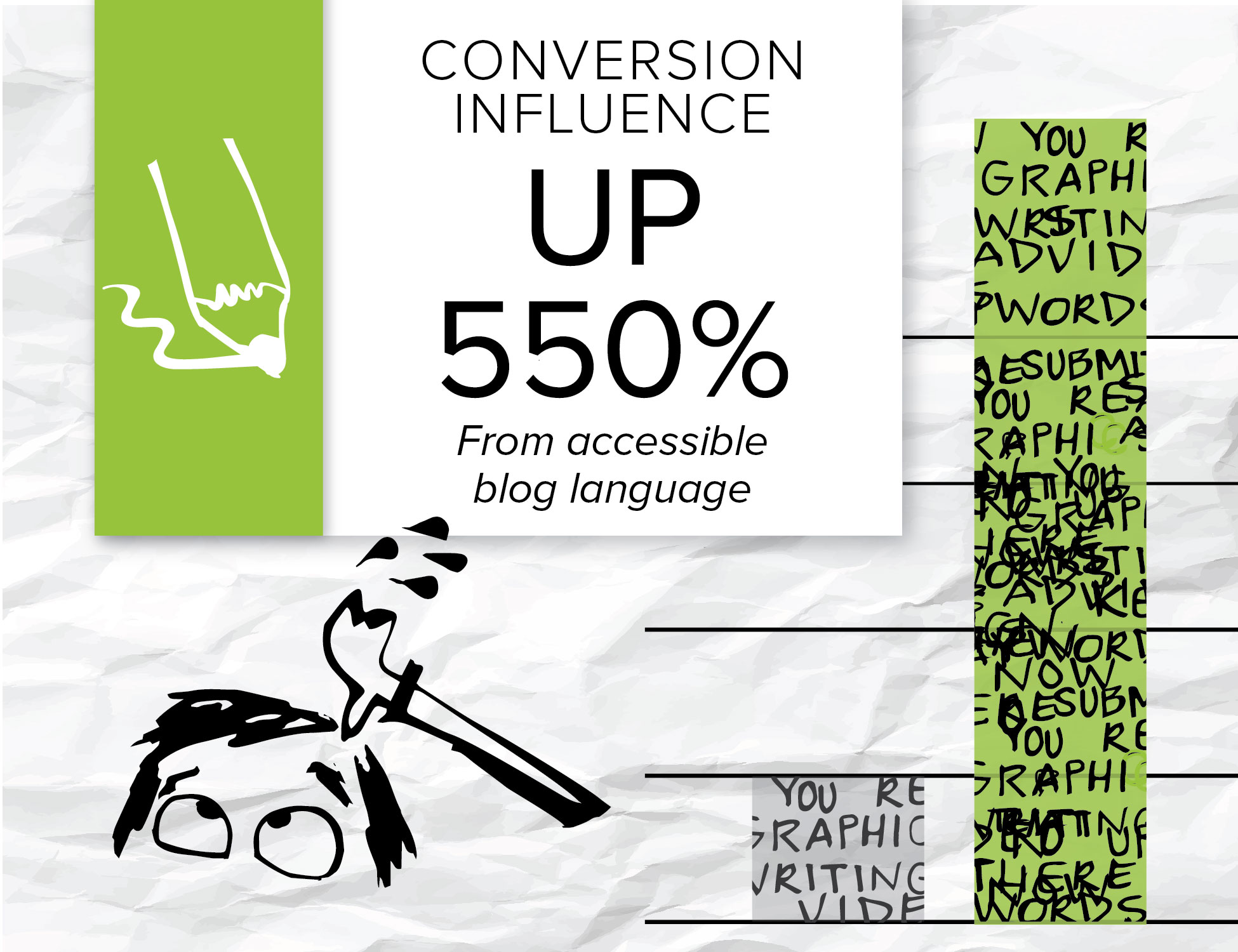Industry: Legal
Content: 2 to 3 Brafton blog posts per week (& 2 to 3 lawyer-written blogs)
Highlights: Accessible language = 550% higher conversion influence
Want to be a “thought leader?” Remember it takes a lot of smarts to say things simply – and a different kind of “smart” than the brilliance of your in-house engineer, lawyer, architect, stylist, etc.
One client in the legal industry was skeptical of Brafton writers’ abilities to deliver content with the nuances that would leave an impression on potential clients. To ease their concerns, we created a hybrid blog, with some posts from our professional content writers and some from the firm’s lawyers. The client’s main goals included thought leadership as an avenue to new business. It’s a common goal. Content marketing is rightly regarded as one of the best avenues to strut a brand’s intellectual agency, and 70 percent of people prefer to learn about companies via articles over ads.
The team analyzed prospects’ web activity for evidence on which approach worked best, and the final ruling is that marketers should trust those with an editorial skill set to build a brand’s intellectual agency.
Accessibility is the first step to influence
The pieces that ran in tandem had decidedly different slants. The lawyers’ blogs were impressive, analyzing and criticizing recent court decisions in locales close to where prospective clients lived and worked. The problem: Fellow lawyers may be the only ones able to follow legalese and understand competency of the posts. The writers’ blogs took a different lens, carefully explaining how recent health hazards, business developments and similar community events might impact people’s lives toward a need for legal aid.
It was quickly clear the writers’ blogs were garnering slightly higher traffic volumes. Crafting content around topics community members had questions about was step one in building an identity as a resource for consumers.
It feels obvious to say consumers have a preference for content that answers their questions – still, it’s a simple truth. This idea is validated not only by the particular traffic patterns of the law blog, but also by updates from Google. Google, which makes its money arguably by serving the best results to searchers, is investing in a “semantic” algorithm that tries treat queries like person-to-person questions.
Jargon monoxide kills deals

Find the ”expert” sweet spot with the right writers
Ultimately, in-house experts and their writing teams (in-house, or agency) should work together to strike the right balance of proprietary knowledge and plain and simple good writing. If you think you’re a candidate for outsourcing content creation, check out these resources to determine how to find an agency fit for your brand voice and goals:
11 Questions to determine if you should keep content in-house or outsource
4 signs of an effective content marketing partner’s sales pitch: A writer’s view



